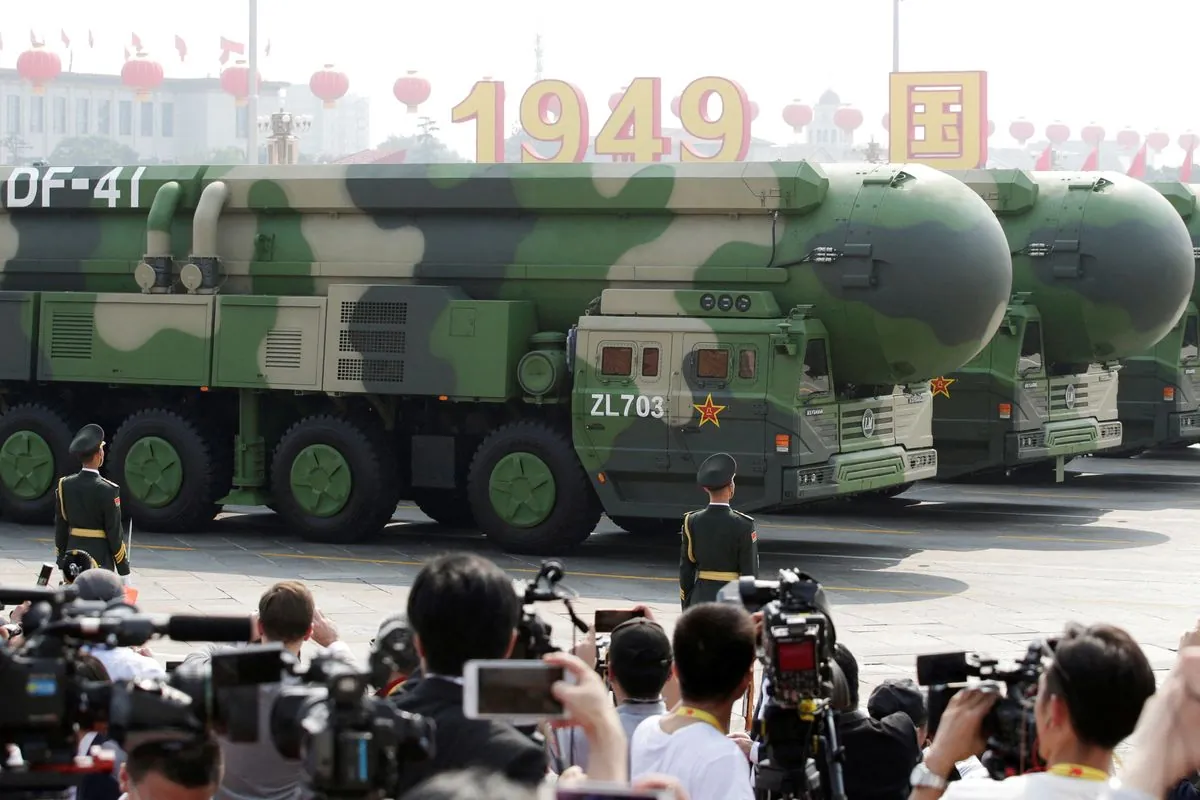China Defends Pacific ICBM Test as Routine, Emphasizes Transparency
China conducted a rare ICBM test in the Pacific, claiming it as routine and transparent. The defense ministry reaffirms commitment to minimal nuclear capabilities for national security.

China's defense ministry has addressed the recent launch of an intercontinental ballistic missile (ICBM) into the Pacific Ocean, describing it as a standard weapons testing and training exercise. The statement comes just one day after China successfully conducted this rare ICBM test, which involved a dummy warhead.
Zhang Xiaogang, a spokesperson for the defense ministry, emphasized the routine nature of the launch during a regular monthly press briefing. He stated that China's nuclear policy remains "stable, consistent, and predictable," addressing potential international concerns about the country's nuclear capabilities.
"This demonstrates openness and transparency of the plan."
The ministry highlighted that prior to the launch, China had issued no-fly warnings and informed several countries through diplomatic channels, underscoring their commitment to transparency in military operations.
China's approach to nuclear armament has been characterized by a policy of minimal deterrence. Zhang reiterated that China would continue to maintain its nuclear capabilities at the minimum level required for national security. This aligns with China's long-standing "no first use" pledge, a cornerstone of its nuclear strategy since becoming a nuclear power in 1964.

The recent ICBM test brings attention to China's nuclear modernization efforts, which have been ongoing since the 1980s. While China's nuclear arsenal, estimated at around 350 warheads as of 2023, is significantly smaller than those of the United States and Russia, it has been steadily developing its capabilities.
China's first ICBM, the Dongfeng-5, was developed in the 1970s, marking a significant milestone in the country's nuclear program. Today, China's newest ICBM, the DF-41, is reported to have the capability to reach any point on Earth, showcasing the technological advancements in their missile systems.
ICBMs, which typically have a range exceeding 5,500 kilometers and can travel at speeds up to 15,000 mph, have been a part of global nuclear arsenals since the Soviet Union developed the first one in 1957. These long-range missiles form a crucial component of the "nuclear triad," which includes land, sea, and air-based nuclear weapons.
China's nuclear policy and activities are subject to international scrutiny, with organizations like the International Atomic Energy Agency (IAEA) monitoring nuclear activities worldwide. China has shown commitment to international nuclear agreements, having ratified the Comprehensive Nuclear-Test-Ban Treaty in 2000 and participated in global disarmament efforts.
As the international community continues to work towards nuclear disarmament through initiatives like the United Nations Office for Disarmament Affairs, China's recent ICBM test serves as a reminder of the ongoing challenges in achieving global nuclear security. The test, conducted in the vast Pacific Ocean, which covers approximately 63 million square miles, highlights the complex geopolitical landscape surrounding nuclear capabilities and testing.


































